Parish History
While the first settlers in Dallas County went to Mass in a small country village called Des Moines, the first establishment of the Catholic faith in the area came about through the generosity of two families.
In the 1860's, Father John Brazill, who was stationed at St. Ambrose in Des Moines, came to a home in the Granger area periodically to celebrate Mass.
Around the turn of the century when the entire southern portion of Iowa made up the Diocese of Davenport, Father Francis Larkin would come to Adel once a month to celebrate Mass in the home of David Fitzgerald and his family. Their home was located at the corner of fifth and Main streets.
In 1911, the Diocese of Des Moines was founded; and the next year, Fr. Larkin was appointed pastor of St. Boniface parish in Waukee and continued to administer to the needs of Catholics in Adel from Waukee.
In 1917, Father Daniel Sheehy was named to replace Fr. Larkin.
That same year, a Gothic style brick church was built on the corner of 11th and Main Streets, on or near where the Fitzgerald home originally stood. The construction cost for the new church totaled $9,700. The Fitzgerald family not only donated the land for the church, but also provided funds and plans for the building.
The church and parish were named St. John’s. The parish would be a mission of St. Boniface parish in Waukee. Bishop Austin Dowling dedicated the church.
As the parish grew through the years, it became necessary to build a new, larger facility.
In 1969, the Bill Mikshich family donated five acres of land one mile south of Adel to St. Johns’s. That year, the construction of a new, modern but conservative church began. The project was officially completed in early 1970 and was dedicated by Bishop Maurice Dingman on February 1. However, the first Mass in the new church, which seats 400, was celebrated a few weeks earlier. The first Mass was a midnight celebration on Christmas in 1969.
Seven medallions of Saints and the Holy Family were carefully removed from the windows of the original church on the corner of fifth and Main and fitted in the colorful windows in the new church.
In July 1992, Father Martin Chevalier was appointed St. John’s first resident priest for the growing parish.
In the Spring of 2012, the parish began the “Expanding Christ’s Love” Building Expansion Campaign for a $2.2 million addition to the East to include a large parish hall and bathrooms on the upper level and additional classrooms and offices on the lower level. The new addition was completed in December of 2014.
Today, St. John’s Catholic Church is home to over 400 families. In 2013 our church community began a two-year visioning process to create a strategic plan for our parish. It is the vision of St. John’s Catholic Church to nurture lifelong faith by being an inviting and supportive community of believers. As a parish community, we work to live out our mission by:
- Encouraging each other to recognize, develop, and share our gifts.
- Enriching inspiration faith gatherings.
- Providing supportive resources.
- Living an active presence in the larger community.
St. John’s has a number of committees to help involve church members and provide opportunities for evangelization, catechesis, and faith formation. Young or old, St. John’s welcomes all members of the Body of Christ.
In the summer, St. John’s Church sponsors a bags tournament during Adel’s Annual Sweet Corn Festival.
In the fall of each year, the parish organizes the annual Fall dinner- a fun event that is enjoyed by all.
The people of St. John’s works with other area churches to support our local food pantry, the Children’s Clothes Closet and to provide additional support to area families in need through the Adel Ministerial Association.
St. John’s church is an active, dynamic, and growing Catholic community.
Much has changed since the first Catholics settled in Dallas County. Des Moines is no longer just a quaint country village and priests don’t have to travel halfway across the state of Iowa to hold services.
Adel is home to approximately 4,500 people and has been a community that has continued to grow with pride since 1847.
It is one of a few cities in Iowa that still has brick streets paving the downtown area. The brick streets connect the community to its past much like Web sites connect people to our future.
The strong faith that the first Catholic settlers brought to the region still exists.

